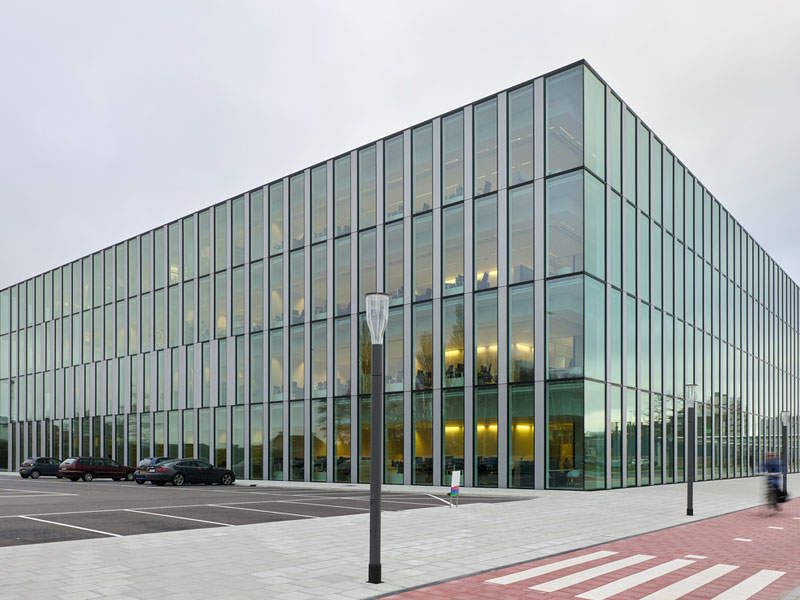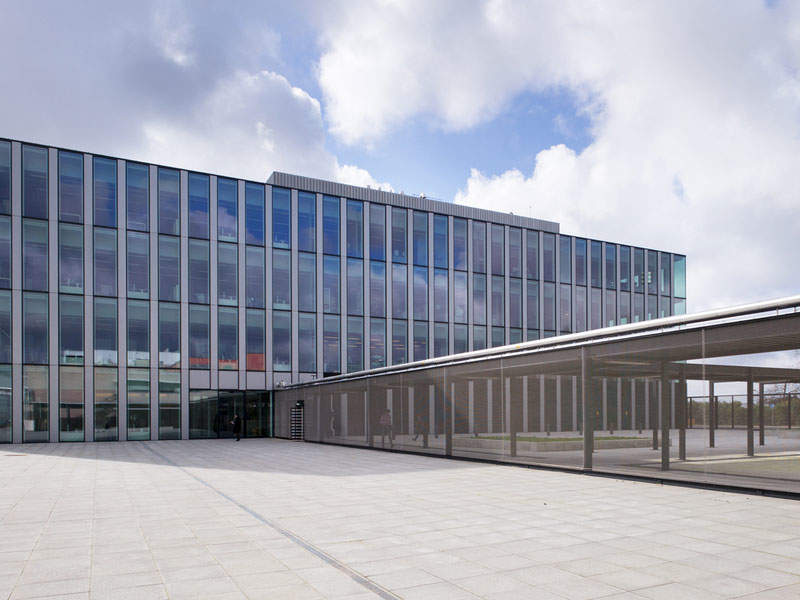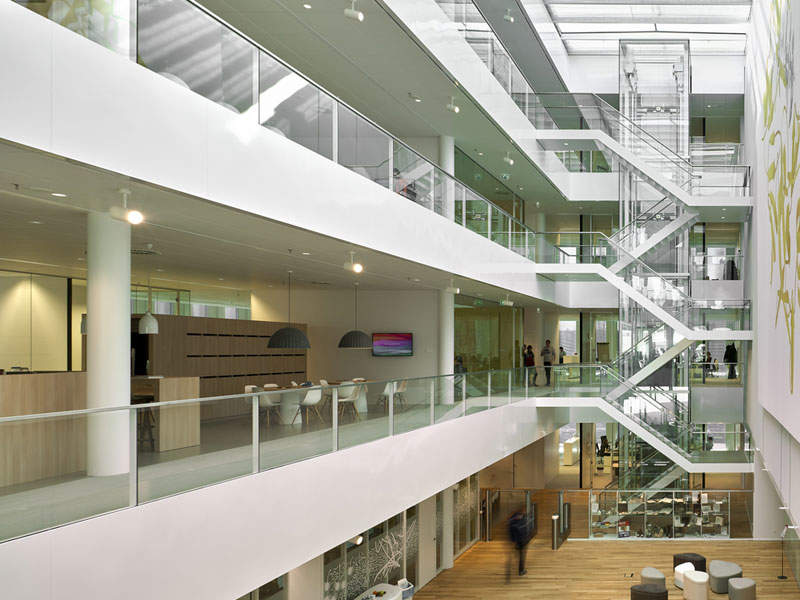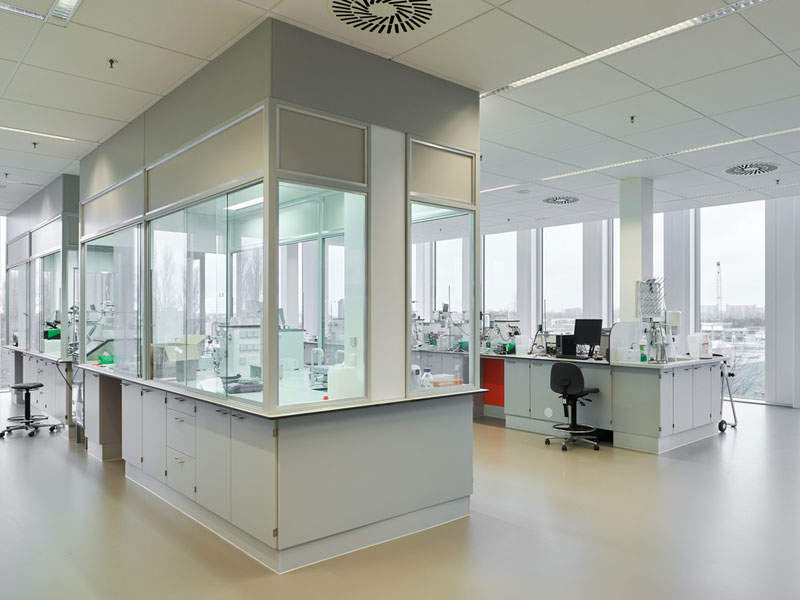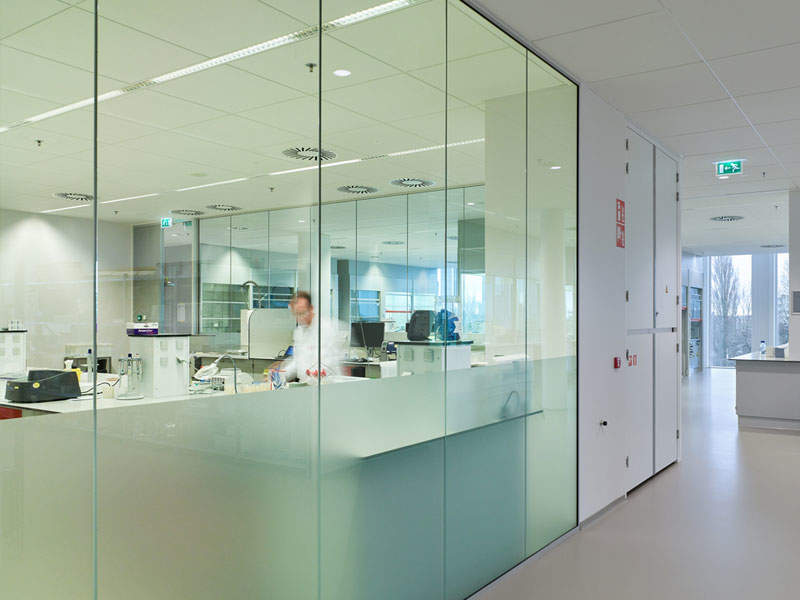Netherlands-based healthcare company Royal DSM has opened a new facility, the Rosalind Franklin Biotechnology Centre, at its campus in Delft.
The building was developed with a €100m ($106m) investment. The facility will be engaged in research and development (R&D) in food and nutrition, as well as feed, fuel, pharmaceuticals and bio-based materials.
The facility is named after scientist Rosalind Franklin, who worked to understand the structures of DNA and created the basis for modern biotechnology.
DSM Food Specialties, a supplier of food enzymes, ingredients and hydrocolloids, is also based at the site.
Design and features of the Rosalind Franklin Biotechnology Centre
The Rosalind Franklin Biotechnology Centre covers a 13,800m² total floor space, including offices and laboratories. The building features 3,000m² of glass panes and a glass roof measuring 22m x 9m.
The building’s ground floor is used for enzyme research using state-of-the-art nuclear magnetic resonance technology. The first floor features screening facilities for bacterial strains, while other floors are used for bioprocess development.
The building’s laboratory side is intended for storage and equipment areas, while the office side contains an atrium with a fully-glazed panoramic lift.
The centre will also include a Food Innovation Centre and Wetering office on-site. These are expected to be connected in the future.
Details of the Rosalind Franklin Biotechnology Centre
The centre is located at DSM Royal’s site in Delft, where DSM Food Specialties has a global headquarters and a pilot fermentation plant. The facility replaces the existing Beijerinck lab, built in 1984 with state-of-the-art lab equipment and systems.
The biotechnology centre accommodates more than 400 R&D experts from 27 countries. It will facilitate a broad range of biotechnology specialisations under one roof and feature an auditorium with two large meeting rooms.
One of the research areas of focus at the centre is the production of fermentative steviol glycosides from the stevia plant to address growing demand for low-sugar food and drinks. The facility has also developed a technology that turns an unpalatable agricultural by-product of rapeseed or canola into a valuable plant protein.
Sustainability profile of the centre
The Rosalind Franklin Biotechnology Centre was built in compliance with building research establishment environmental assessment method (BREEAM) standards.
Netherlands-based construction company Heijmans was awarded a contract for the biotechnology centre’s construction, which was completed in September 2016.
British engineering consultant Deerns was awarded a contract to provide the design and procurement of the facility’s mechanical, electrical and plumbing systems.
Cepezed Architects provided the design for the biotechnology centre, while Fokkema and Partners Architecten developed the concepts for the office space and interior design.
MTSA Technopower delivered lab infrastructure and auxiliary equipment, including 40 fermentation workstations, for the biotechnology centre in November 2016.
Dutch engineering, design and project management firm Royal HaskoningDHV served as the project manager.
Marketing commentary on DSM
DSM delivers food and dietary supplements, personal care, feed, medical devices, automotive, paints, electrical and electronics, life protection, alternative energy and bio-based materials to markets worldwide. The company currently employs around 25,000 people.

